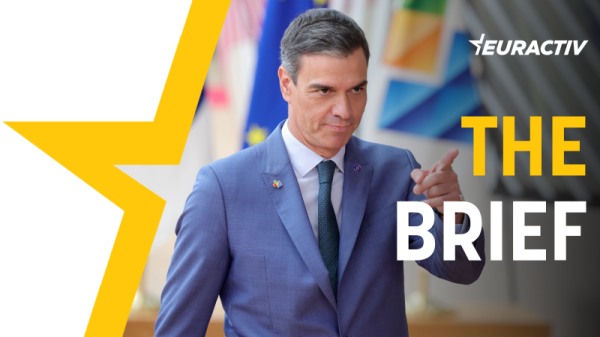
Spain’s request to expand the list of official EU languages to include those formally recognised in Spain – Basque, Catalan, and Galician – has prompted scorn from some quarters of Brussels, who fret about adding to the EU’s Tower-of-Babel administration.
Put forward by Spanish Prime Minister Pedro Sánchez in a bid to placate Catalan separatists (a vital part of the electoral maths needed to keep him in office), the move is likely to meet opposition from countries worried about opening the floodgates to similar requests.
Leaders may also baulk at the cost of providing translation into these new languages when Spaniards (whether or not they identify with that label) can already access official EU documents in Spanish.
Of course, viewing the request through the prism of mere practicality is missing the point. For proponents, official EU language status is more about symbolism than communication with the EU institutions.
There are two schools of thought as to the worth of languages. The first is purely pragmatic – languages at their heart are a means to communicate. Their power stems mainly from their utility. If we cannot connect with others, then a language is simply ornamental.
This argument serves English particularly well, as it is the world’s most widely understood language when people who speak it as a second language are accounted for.
In the Brussels bubble, English has become an essential communication tool.
This is not to be confused with the language of Shakespeare. Instead, I’m referring to pared-back Euro-English, a way of speaking tailored to the needs of a pan-cultural bureaucracy.
However, the other vision of languages is more emotive – in this reading, communication is not even the most important aspect. Instead, languages have an elevated cultural and political significance.
Politically, they mark a people as distinct, especially those that may see themselves as marginalised. To speak them can be a defiant act, a sign that the speakers refuse to acquiesce to a larger, more dominant language.
The Irish language (or Gaeilge) is a good example of this. Irish is not widely spoken outside of pockets of Ireland, and there are no longer any monolingual speakers of the language, the last having died in 1998.
However, Irish is an official language of the EU, on a footing with Italian, Greek, and Dutch.
One could argue that it is a waste of time and money to translate EU documents into a minority language, one that cannot claim to be the most widely spoken language in any member state. In theory, all Irish men and women looking to read an EU document could do so in English.
Yet the Irish language remains an important part of the nation’s identity. The state’s attempt to revive it as a spoken language may have produced questionable results, but it endures as a symbol of the country’s independence from Great Britain and a connection to its past.
“Not to learn Irish is to miss the opportunity of understanding what life in this country has meant and could mean in a better future,” wrote the Irish poet Seamus Heaney.
Such arguments could presumably be applied to Basque, Catalan, Galician and other little-spoken but culturally-rich European languages.
So, should the EU embrace language utilitarianism or impractical beauty?
While the EU institutions have a reputation for being romantic in thought and no-nonsense in action, they too are prone to illogical leaps to satisfy a broader motive.
Why else would the European Parliament travel between Brussels and Strasbourg every month? It is an indefensible move from a purely pragmatic standpoint. Yet politically, it is important.
Politics, like languages, allow for meaning beyond the purely rational.
The Roundup
At least 2,013 people died in the Central Mediterranean trying to cross the sea to reach Europe in 2023, according to the International Organisation for Migration (IOM).
Germany will likely emit 150 million tonnes more of CO2-equivalent gases than EU rules created by the Effort Sharing Regulation permit, which is expected to result in a hefty penalty payment of up to €30 billion.
The European Commission has announced it would use a novel competition tool to assess two mergers that do not have an EU dimension under the EU’s competition regulation, but nevertheless threaten competition in the single market.
Germany’s chemical and car industries are protesting the anticipated bureaucratic strain expected from the phase-in of the EU’s novel carbon border tariff (CBAM), while consultancy Deloitte finds that companies have failed to sufficiently prepare.
The West’s hesitation in supplying all necessary weapons systems to Ukraine, driven by fear of escalation, has been costly and a different approach could have changed the course of the war, the EU’s chief diplomat Josep Borrell said on Monday.
As we enter an era of “global boiling”, a rise in environmental migrants is expected and the EU should realise that climate, not migration, is the greatest threat to Europe and should be our number one priority, writes François Gemenne.
Look out for…
- EU institutions in summer recess.
[Edited by Nathalie Weatherald/Alice Taylor]
Source: euractiv.com



